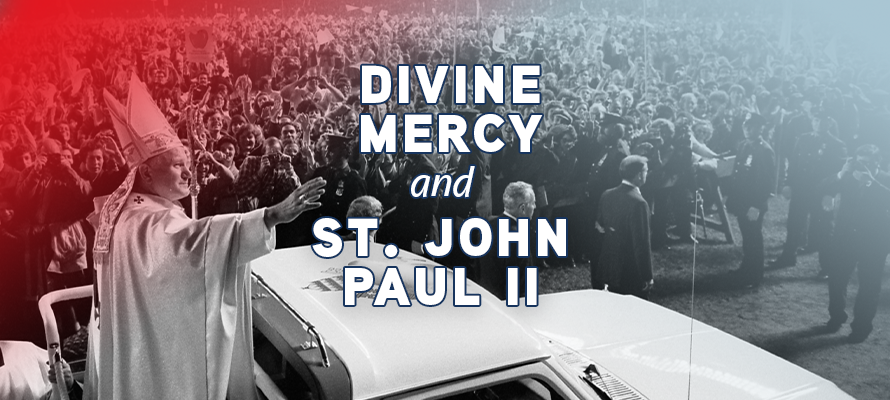Following Jesus asks much of us but offers the eternal love of the Father in return. To truly stay united to Jesus, we need grounding in two essential elements. First, by taking on the mind of Christ and adhering to what the Church proclaims. Second, by living in accord with the moral teaching of the Church. Following Jesus asks much of us but offers us the eternal love of the Father in return.
Pope Benedict has referred to Pope St John Paul as the Apostle of Mercy. Early in his pontificate, St John Paul wrote an encyclical letter on the topic of Divine Mercy. His purpose was to call the Church to mercy, which he knew that both humanity and the modern world was in great need. His central message is that the mercy of God is stronger than all of the evil there is in the world, and that dependence on God’s mercy does not humiliate men and women, but on the contrary, gives new value to our lives.
St John Paul opens his teaching on mercy with an important reference to the Second Vatican Council from the Pastoral Constitution of the Church in the Modern World (22): The truth is that only in the mystery of the Incarnation, does the mystery of humanity take on light. Christ, the New and final Adam, by the revelation of the mystery of God the Father and His Love, fully reveals man to man himself and makes his supreme calling clear. In Christ, who is the image of the invisible God, man is restored by grace to the divine likeness which was disfigured from the first sin of Adam onwards. Through Christ and in Christ the riddles of sorrow and death grow meaningful. Apart from the Gospel, these tribulations overwhelm us. Christ is risen, destroying death by His death, and lavished life upon us. St John Paul will return to these words hundreds of times in his writings and prayers!
Nowhere does Christ’s teaching on the mercy of God appear at its clearest is the parable of the Prodigal Son. The prodigal son squanders his father’s inheritance, and in doing so looses more than his wealth, but importantly, his dignity as a son and family member. The father’s unconditional love, which not only welcomes but restores the dignity and community that was lost, is the essential teaching of Our Lord. Christ shows us mercy as a love that is capable of reaching down to each and every prodigal son or daughter, and to every human misery, and above all to sin. Mercy does not humiliate, but restores, and promotes and draws good from all forms of evil existing in the world and in man.
Believing in the crucified Son means believing that love is present in the world and that this love is more powerful than any kind of evil. “Believing in this love means believing in mercy” beautifully writes St John Paul, who continues “the Cross is the most profound condescension of God to man, it is like a touch of eternal love upon the most painful wounds of man’s earthly existence.” The Church professes and proclaims mercy when she brings people close to the sources of the Savior’s mercy – the Eucharist and Penance. The Eucharist brings us ever nearer to that love which is more powerful than death. Penance prepares the way for each individual, even those burdened with great faults, to experience a love greater than sin. We address our prayer for mercy to a God “who cannot despise anything that he has made, the God who is faithful to Himself, to His fatherhood” so that this love “may be shown to be present in our modern world and to be more powerful than evil.”


